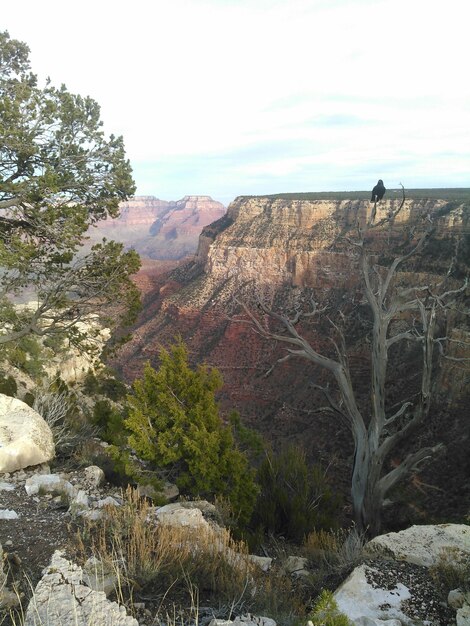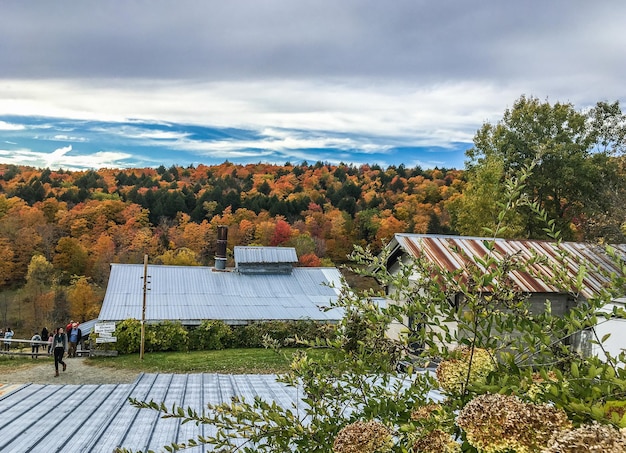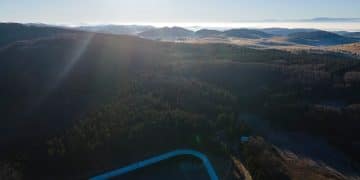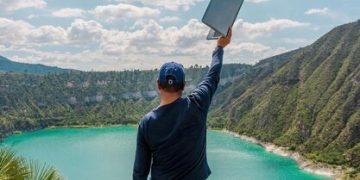US Travel Trends: What to Expect in the Coming Years

US travel trends are expected to evolve significantly, influenced by factors like technology, sustainability, and shifting traveler preferences, leading to unique experiences and destinations.
The landscape of travel within the United States is constantly changing. From new technologies impacting how we book trips to a growing awareness of sustainable travel, several factors are reshaping the way Americans explore their own country. Understanding these US travel trends is crucial for anyone planning a trip or working in the travel industry. Let’s dive into what the future holds.
Evolving Traveler Preferences
Traveler preferences are no longer solely driven by convenience and cost. Today’s travelers are seeking authentic experiences, personalized itineraries, and unique destinations that cater to their specific interests. This shift is influencing everything from the types of accommodations people choose to the activities they prioritize during their trips.
Demand for Authentic Experiences
More than ever, travelers crave genuine cultural immersion. They want to engage with local communities, explore hidden gems, and participate in activities that offer a true sense of place. This demand is driving growth in experiential travel, where the focus is on creating lasting memories rather than simply checking off tourist landmarks.
Personalized Travel Itineraries
Generic, one-size-fits-all travel packages are becoming less appealing. Travelers now prefer customized itineraries tailored to their individual needs and preferences. This includes everything from dietary restrictions and accessibility requirements to specific interests like hiking, photography, or culinary experiences.

- Focus on Local Culture: Seek out opportunities to interact with local artisans, chefs, and community members.
- Support Small Businesses: Choose locally-owned hotels, restaurants, and tour operators to contribute to the local economy.
- Embrace Unique Activities: Participate in activities that are specific to the region, such as cooking classes, historical tours, or outdoor adventures.
In conclusion, evolving traveler preferences are pushing the travel industry to become more personalized, authentic, and community-focused. Those who adapt to these changes will be best positioned to attract and retain travelers in the years to come.
The Rise of Sustainable Travel
Sustainability is no longer a niche concern; it’s a core value for many travelers. From reducing their carbon footprint to supporting eco-friendly businesses, travelers are increasingly conscious of the environmental impact of their trips.
Eco-Friendly Accommodations
Hotels and resorts are responding to the demand for sustainable travel by implementing eco-friendly practices. This includes reducing waste and energy consumption, using sustainable building materials, and offering programs that support local conservation efforts.
Responsible Tourism Practices
Responsible tourism goes beyond environmental sustainability to include social and economic considerations. This means supporting local communities, respecting cultural traditions, and ensuring that tourism benefits everyone involved.

- Choose Green Hotels: Look for accommodations with certifications like LEED or Green Key.
- Reduce Your Carbon Footprint: Consider traveling by train or bus, or opt for direct flights to minimize emissions.
- Support Local Communities: Shop at local markets, eat at locally-owned restaurants, and participate in community-based tourism initiatives.
In conclusion, the rise of sustainable travel is transforming the way people explore the world. By making conscious choices, travelers can minimize their environmental impact and contribute to the well-being of local communities.
Technological Innovations in Travel
Technology continues to play a pivotal role in shaping the travel experience. From AI-powered travel planning to virtual reality previews of destinations, innovation is making travel more accessible, personalized, and convenient.
AI-Powered Travel Planning
Artificial intelligence is being used to personalize travel planning, offering customized recommendations based on individual preferences and past travel history. AI-powered chatbots and virtual assistants can help travelers find the best deals, book flights and accommodations, and create itineraries.
Virtual Reality Travel Previews
Virtual reality (VR) is offering travelers the opportunity to preview destinations before they book their trips. VR experiences can transport users to far-off places, allowing them to explore hotels, museums, and landmarks from the comfort of their own homes.
Technological innovations are enhancing every aspect of travel, from planning and booking to experiencing destinations. As technology continues to evolve, it will play an even greater role in shaping the future of travel.
The Appeal of Less-Traveled Destinations
Overcrowding at popular tourist hotspots is driving a shift towards less-traveled destinations. Travelers are seeking out hidden gems and off-the-beaten-path experiences that offer a sense of discovery and adventure.
Exploring Undiscovered Gems
Many regions within the US offer unique cultural experiences and landscapes that are often overlooked by mainstream tourism. These undiscovered gems provide a chance to connect with local communities and experience the genuine beauty of the country.
Off-the-Beaten-Path Experiences
Rather than sticking to conventional sightseeing, travelers are venturing into remote areas and engaging in unique activities such as wildlife watching, adventure sports, or local festivals. These experiences offer a deeper understanding of the region and provide enriching memories.
The appeal of less-traveled destinations is growing, as tourists seek out unique, authentic experiences outside of the typical tourist traps.
The Growth of Wellness Tourism
Wellness tourism is on the rise, with travelers increasingly prioritizing their physical and mental well-being. This includes incorporating wellness activities into their trips, such as yoga retreats, spa treatments, and outdoor adventures focused on mindfulness and rejuvenation. As stress levels increase in everyday life, the desire to escape and prioritize health is driving this trend.
Yoga and Meditation Retreats
Yoga and meditation retreats offer travelers a chance to disconnect from technology, reconnect with themselves, and improve their overall well-being. These retreats often take place in serene natural settings, providing a peaceful and rejuvenating experience.
Spa and Rejuvenation Treatments
Spa treatments and rejuvenation therapies are becoming increasingly popular among travelers seeking to relax and de-stress. Many hotels and resorts now offer comprehensive wellness programs that include massage, aromatherapy, and other holistic treatments.
The growth of wellness tourism reflects a broader cultural shift towards prioritizing health and well-being. As stress levels continue to rise, travelers will likely seek out more opportunities to incorporate wellness activities into their travels.
The Impact of Remote Work on Travel
The rise of remote work has created new opportunities for travel. With the ability to work from anywhere, many people are combining work and leisure, extending their trips and exploring new destinations while remaining connected to their jobs.
Bleisure Travel Trends
The term “bleisure” refers to the combination of business and leisure travel. This trend is growing, as remote workers extend their business trips to include leisure activities or incorporate work into their vacation plans.
Extended Stay Travel
Remote work is also driving the growth of extended stay travel, with many people choosing to spend weeks or months in a new destination while working remotely. This allows them to immerse themselves in the local culture, explore the region at their own pace, and experience a new way of life.
The impact of remote work on travel is significant, as people enjoy increased freedom and flexibility in combining work and leisure.
| Key Trend | Brief Description |
|---|---|
| 🌱 Sustainable Travel | Eco-friendly practices and responsible tourism are becoming increasingly important. |
| 📱 Tech Innovations | AI and VR are transforming travel planning and destination previews. |
| ⛰️ Less-Traveled Destinations | Travelers are seeking hidden gems and off-the-beaten-path experiences. |
| 🧘 Wellness Tourism | Prioritizing physical and mental well-being with wellness activities and retreats. |
FAQ
▼
Sustainable practices include choosing eco-friendly accommodations, reducing your carbon footprint by using trains or buses, and supporting local communities by shopping at local markets.
▼
Technology through the use of AI and VR is allowing travelers to personalize and customize vacation plans, making the experience easier along with experiencing the vacation before it happens.
▼
Travelers are increasingly seeking out more undiscovered vacation spots to facilitate memorable experiences outside of crowded areas.
▼
Wellness tourism offers relaxation, rejuvenation, and an opportunity to prioritize physical and mental health through activities like yoga, meditation, and spa treatments.
▼
With the rise of remote work, more people are traveling while working, combining business and leisure, and extending their stays in various destinations.
Conclusion
As we look to the future, US travel trends will continue to evolve, shaped by technology, sustainability, and the ever-changing preferences of travelers. By understanding these trends, both travelers and industry professionals can prepare for exciting new opportunities and experiences in the world of travel.





